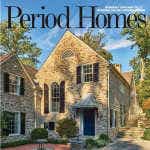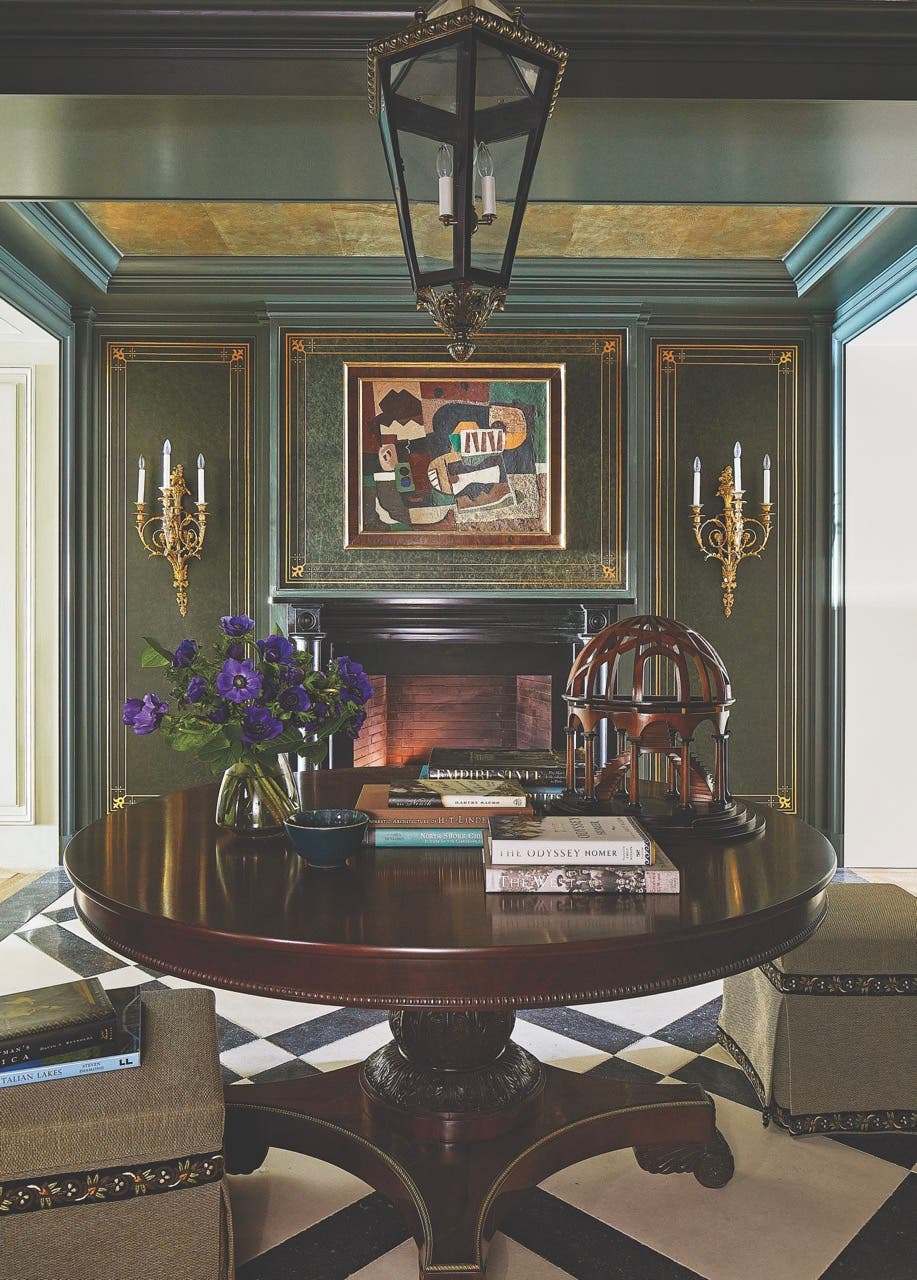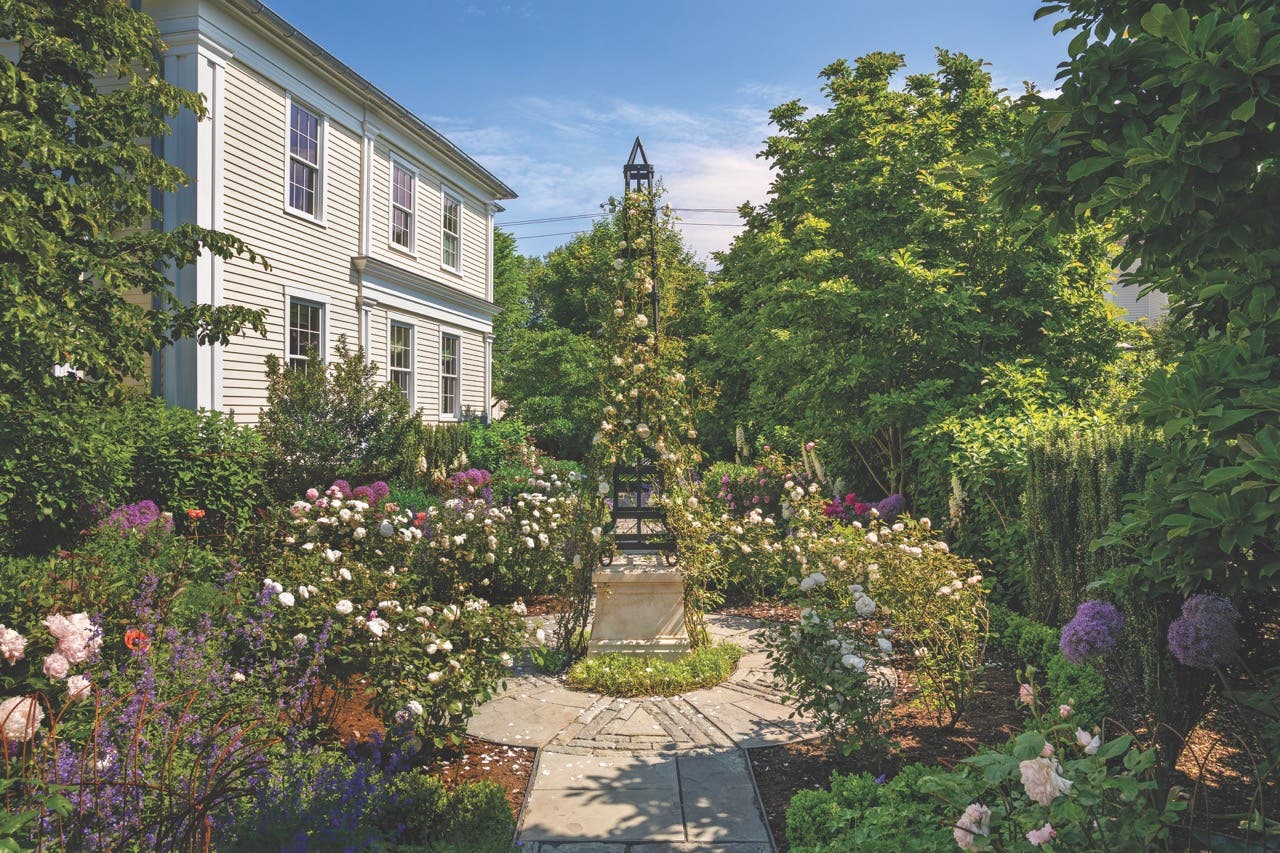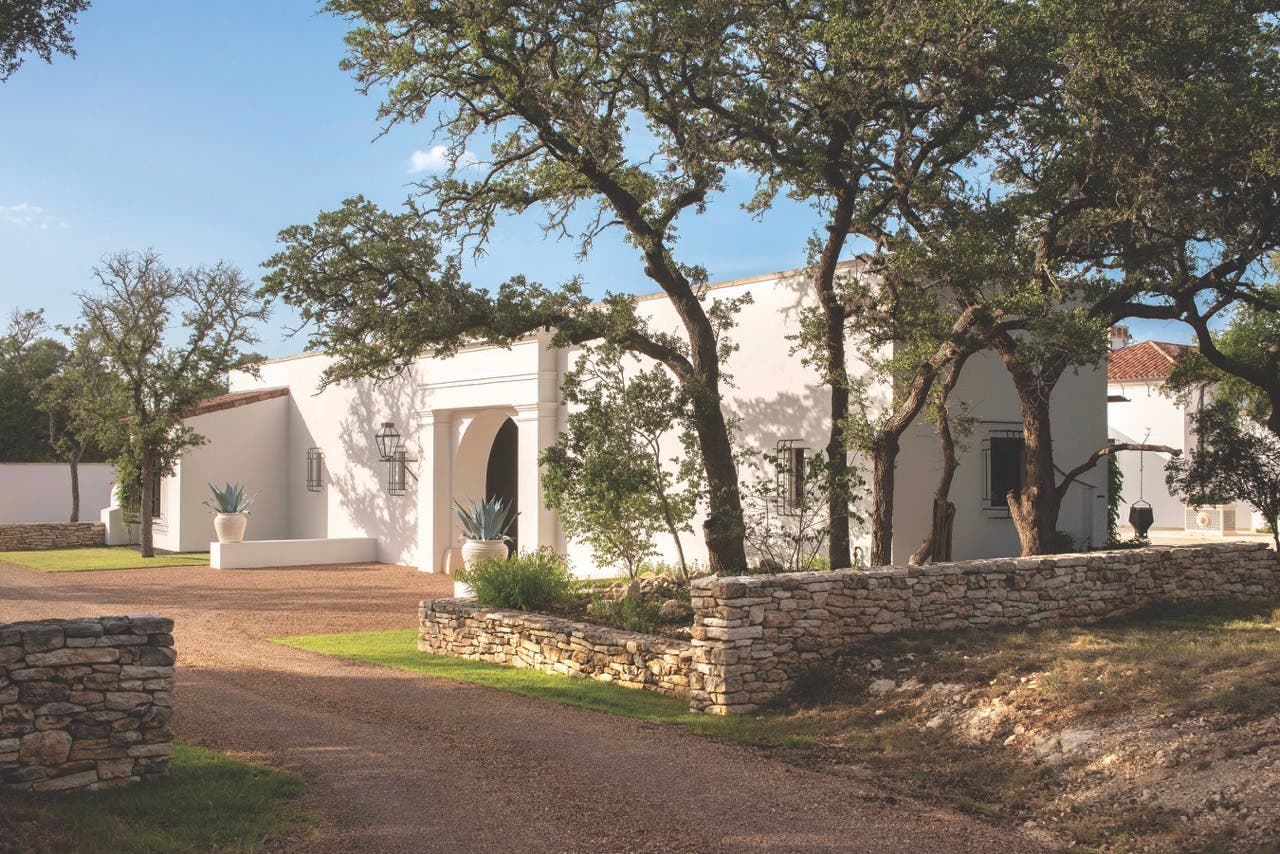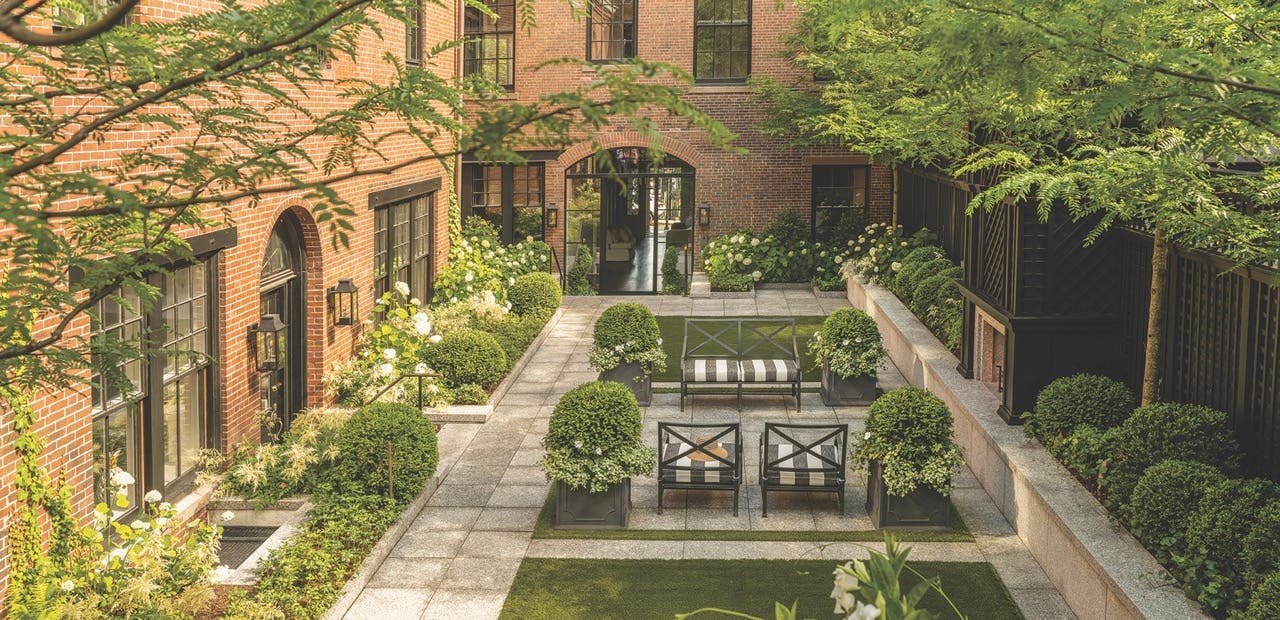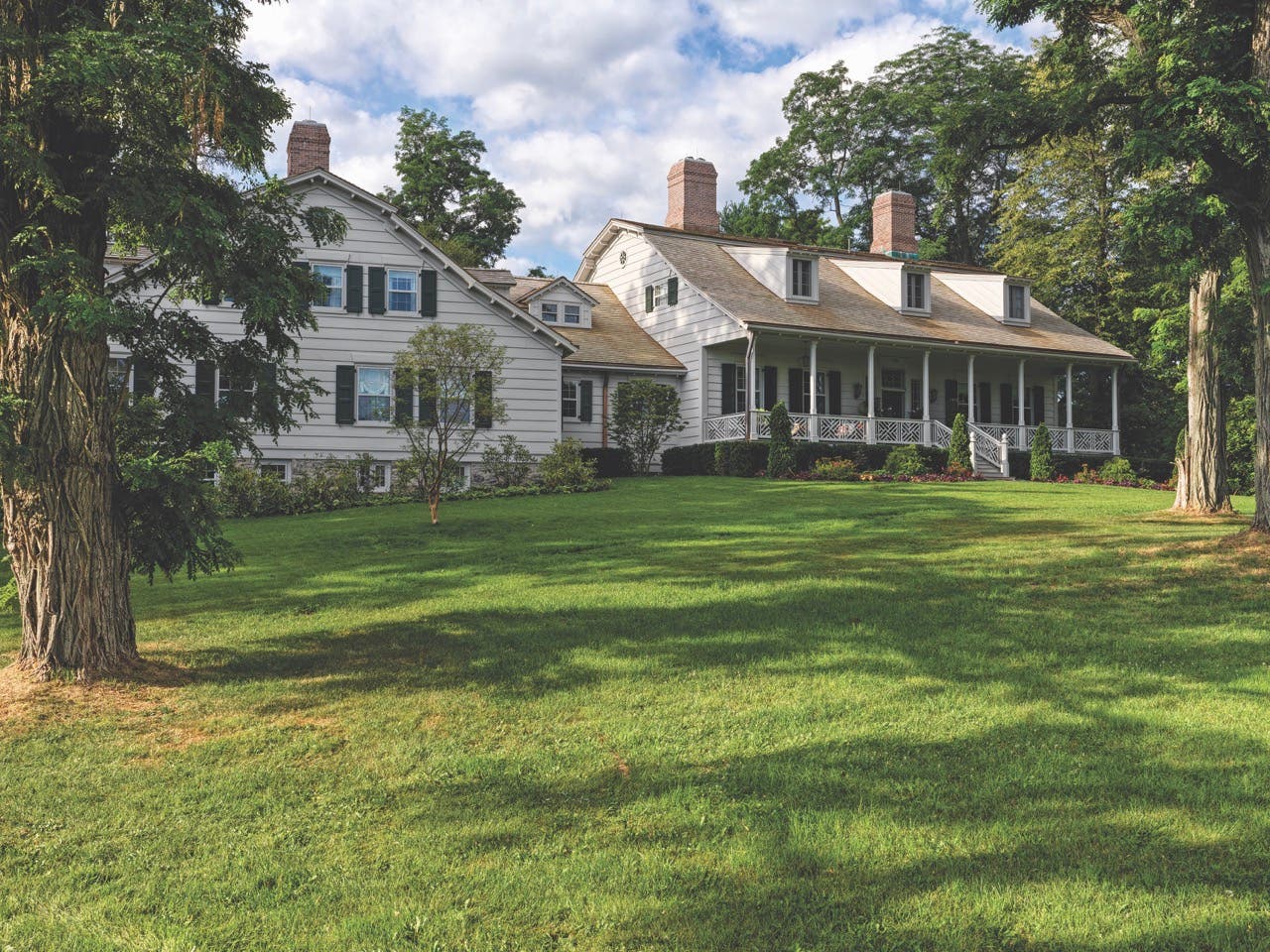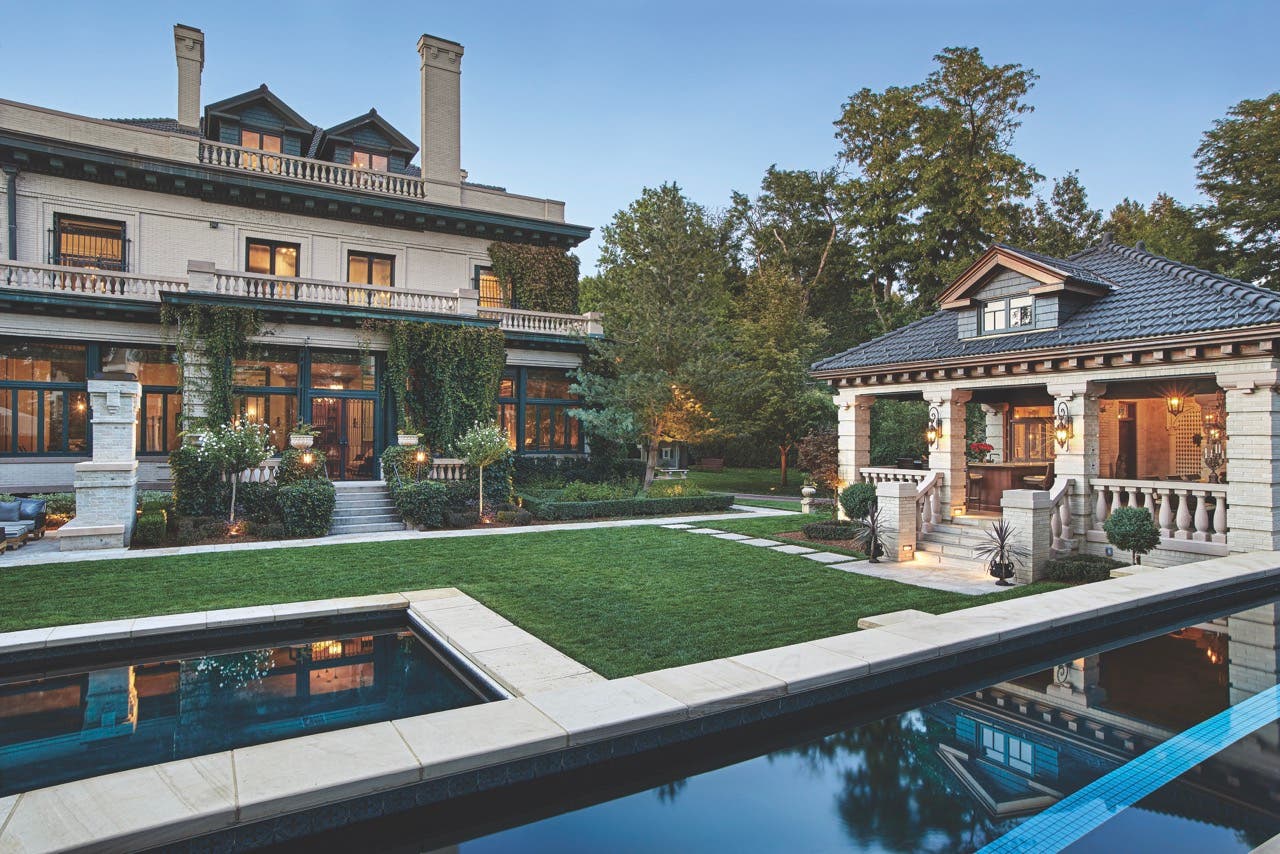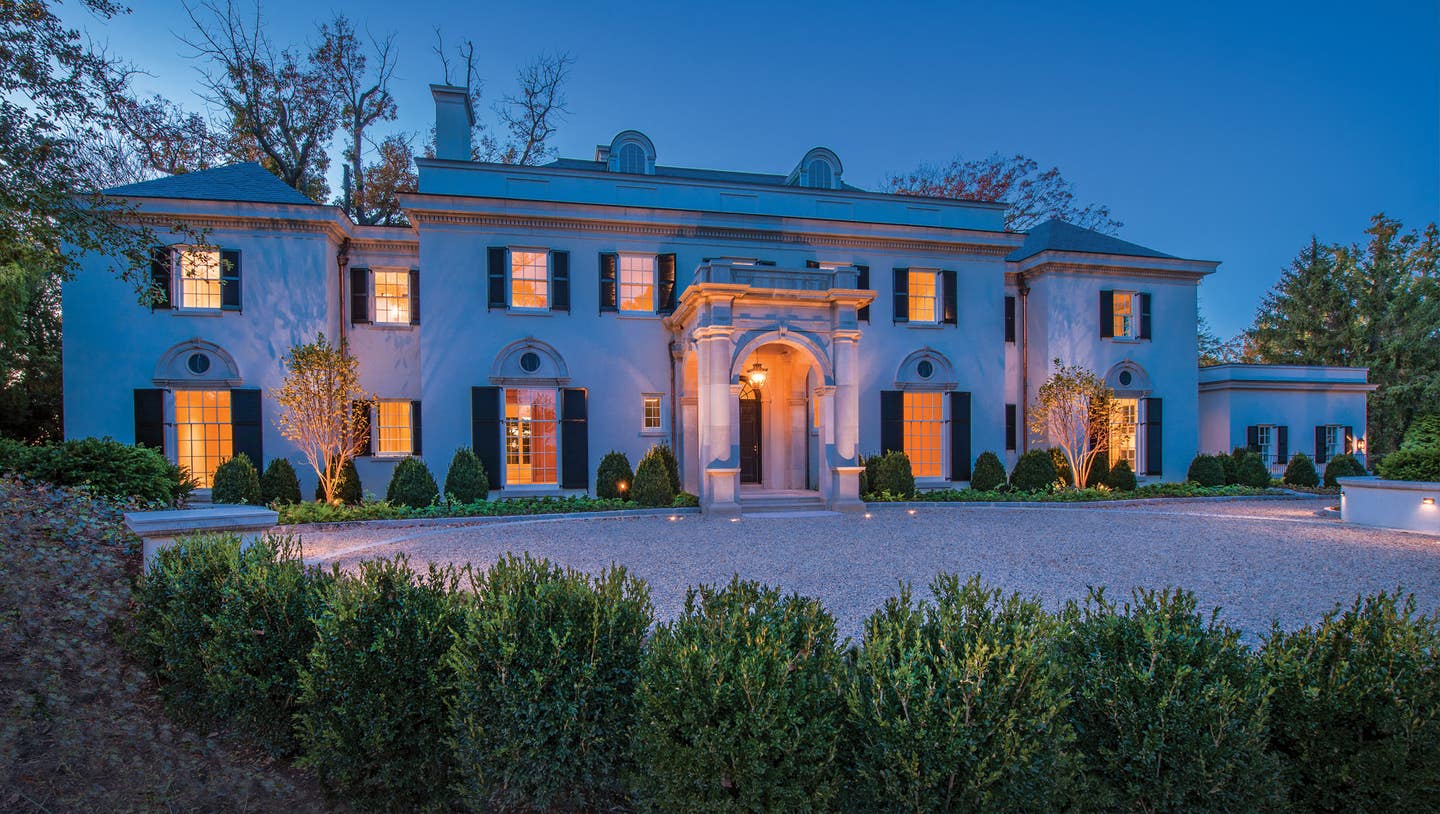
Palladio Awards
Jones & Boer Architects: Chain Bridge Road
Residential Palladio Winner
New Design & Construction—more than 5,000 square feet
Chain Bridge Road
Jones & Boer Architects
On Chain Bridge Road, a historic, meandering route that connects Virginia and Washington, D.C., there’s a new Regency-style residence that looks as though it has been there for a century.
The D.C. home was built after the former house and its stellar art collection were destroyed in a fire and the property was divided into two one-acre lots. The D.C-based firm of Jones & Boer Architects, working with the developer and consulting with a real estate agent, designed the estate, which includes terraces, a lawn, and a pool.
“The developer wanted a traditional-style house that would rival the beauty and grandeur of the great mansions built in the city during the 1910s and 1920s,” says Principal Wouter Boer, adding that even though it was a spec house, the highest-grade materials, including slate for the roof, were used.
Boer designed the residence following Andrea Palladio’s Doric Order for the proportioning system for the exterior details, which include front and rear porticos, blind and Palladian arches, sills and terrace paving.
The five-part, two-story home—main house, guest suite, family wing, service wing and garage—covers 15,000 square feet that unfold along the site’s long, narrow street frontage, preserving a sizable grassy back-yard space for large-scale entertaining.
“We chose Indiana limestone because of its beauty, and because many federal buildings in D.C. are made of it,” Boer says, adding that 200 tons were used in the load-bearing structure.
Boer also took cues from D.C. residences designed by American architect John Russell Pope, including the Henry White house, and from English architect Sir John Nash.
“The Henry White house, even though it is brick, is similar in scale to the one I designed. I took inspiration from the stone detailing on it and other Pope houses,” Boer says, adding that the cornice on the main house was influenced by one on a Pope residence. “I got the stucco components from Nash. The exterior is a careful study in proportion and scale.”
Another source Boer consulted was Johann Matthaus Von Mauch’s and Charles Pierre Joseph Normand’s seminal tome Parallel of the Classical Orders of Architecture, which was originally published in 1819.
“The home’s details are from Palladio’s Doric order, which is illustrated in the book,” Boer says, adding that the authors field-measured every monument they included. “On the rear portico, for instance, I followed the order—taenis and regula of guttae but, just like Pope’s National Gallery of Art in D.C., I left out the triglyphs.”
The estate, which is reached via a pea-gravel drive that culminates in an oval auto court at the front portico, places a priority on privacy.
“We retained the three mature trees, which shield the site from the view of neighboring homes,” Boer says. “The site is the highest on the road and the second highest in the city, and it’s directly opposite Battery Kemble Park, which was once a Civil War fort. It feels both rural and urban at once.”
The interiors of the estate are light and airy, and the details, such as the “floating” brass central stairway, are based on historical precedent.
Boer says that the estate stands “as a testament to the local construction industry—that beauty, craftsmanship, quality and a sense of timelessness are still valued and achievable in today’s real estate market.”
Key suppliers
General Contractor Banks Development Company
Interior Designer Allyson Banks
Structural Engineer Ehlert/Bryan, Inc.
Landscape Architect Arentz Landscape Architects
Civil Engineering CAS Engineering
Windows & Doors Tradewood Industries
Limestone Bybee Stone Company
Roof Del Carmen Slate
Stucco Hard Coat 3-Layer stucco with Sto-Gold waterproofing membrane
Shutters Timberlane Shutters
Floors Engineered rift-sawn White Oak, widths from 5” to 12”
Custom Metalwork Cardine Studios
Fireplace Mantels Chesney’s
Lighting Control Lutron Electronics, Inc.
Door Hardware Classic Brass

